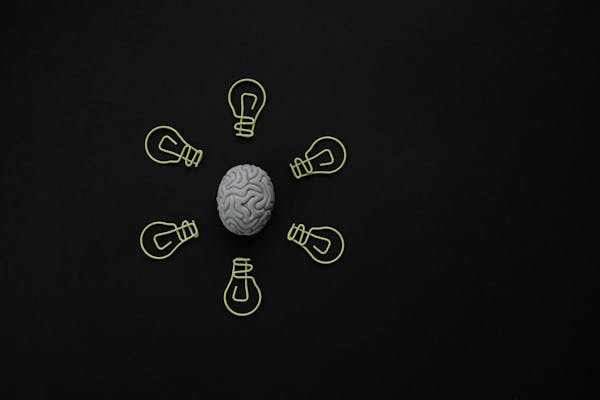ADHD (Attention Deficit Hyperactivity Disorder) is more than just a challenge with focus or restlessness, it’s a complex neurodevelopmental condition that affects the brain’s functioning. Understanding how the ADHD brain works can help you gain a deeper appreciation for the unique way individuals with ADHD experience the world. Here’s an insight into the science of ADHD and how it impacts cognitive and emotional processes.
What makes the ADHD brain different?
The brain of someone with ADHD functions differently, primarily due to variations in areas that regulate attention, impulse control, and executive function. These differences result in symptoms such as inattention, hyperactivity, and impulsivity.
One key difference is the activity levels of neurotransmitters; the chemicals that send messages between brain cells. People with ADHD often have lower levels of dopamine, a neurotransmitter responsible for reward processing and motivation. This imbalance can lead to difficulties maintaining focus, staying organised, and managing tasks.
The role of executive functions
Executive functions are mental processes that allow individuals to plan, organise, and execute tasks. These functions include working memory, self-regulation, attention, and decision-making. In people with ADHD, these processes can be less efficient, leading to:
- Struggles with organising tasks or remembering deadlines
- Difficulty controlling impulses and emotions
- Trouble focusing for extended periods
- Becoming easily distracted by external stimuli
The impact of the ADHD brain on daily life
Understanding how the ADHD brain works can help explain the everyday challenges faced by those with the condition. These challenges can affect multiple areas of life, from work and education to relationships and mental well-being.
- At work or school: Difficulty with organisation, prioritising tasks, and staying on track can lead to missed deadlines or incomplete work. People with ADHD may also feel overwhelmed by the constant need to manage distractions.
- In relationships: Impulsivity and emotional dysregulation can affect interactions with others. People with ADHD may unintentionally interrupt conversations, forget important dates, or struggle with follow-through, which can strain relationships.
- In mental health: People with ADHD may also experience co-occurring mental health conditions, such as anxiety, depression, or low self-esteem. The challenges of living with ADHD, compounded by external expectations, can lead to frustration and feelings of inadequacy.
ADHD and focus: A different kind of attention
While it may seem like people with ADHD lack the ability to focus, the reality is more nuanced. In fact, individuals with ADHD can hyperfocus, especially on tasks that they find stimulating or rewarding. This ability to zero in on a specific task can sometimes be so intense that they lose track of time and neglect other responsibilities.
However, when the task is perceived as boring or uninteresting, the opposite can happen, the ADHD brain may struggle to focus at all. This shifting attention span is often a source of frustration and confusion for those who don’t understand the nature of the condition.
Strategies to manage ADHD brain function
While the ADHD brain may process information differently, there are effective strategies to manage and harness these differences. Here are some methods that can help:
- Breaking tasks into smaller steps: Large projects can seem overwhelming. Breaking tasks down into smaller, more manageable pieces can help individuals with ADHD maintain focus and feel more in control.
- Setting clear and achievable goals: Clear goals provide a sense of purpose and direction. These goals should be specific, measurable, and time-bound to help improve focus and productivity.
- Using reminders and organisational tools: Digital tools, planners, and reminders can help individuals stay organised and remember important tasks or deadlines.
- Creating a structured environment: A consistent routine and environment can reduce distractions and create a sense of stability, making it easier to focus on tasks.
- Mindfulness and relaxation techniques: Mindfulness practices, such as meditation or deep breathing, can help individuals manage stress and regulate emotions. These techniques can also improve attention and self-control.
Conclusion
The ADHD brain is unique, and while it presents challenges, it also offers strengths, such as creativity, innovation, and the ability to hyperfocus on tasks that are engaging. By understanding the neurological differences that define the ADHD brain, individuals with ADHD can better navigate their world, using strategies to manage symptoms and thrive in both personal and professional life.
With the right tools, strategies, and support, anyone with ADHD can unlock their potential and lead a fulfilling, successful life.

